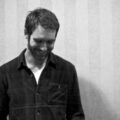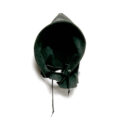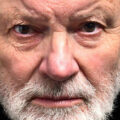Stones of Witness: On Carolyn Forché’s In the Lateness of the World

Carolyn Forché is known for what she calls a “poetry of witness,” a poetry that “could reflect upon an experience or contemplation of contemporary events without being polemical.” Contrary to popular misconceptions, this is not a poetry of strident political messaging. Instead, Forché seeks to locate the individual experience in its social contexts, insisting that the private and the intimate are not separate from our communal life. In particular, she is interested in examining the fractures in human consciousness amid the extremities of war and exile. Her poetry is political in the sense that it observes and records—witnesses—what we can plainly see, especially when it flies in the face of entrenched beliefs.
In the late 1970’s, Forché traveled to El Salvador at the invitation of Leonel Gómez Vides, a cousin—more likely a nephew—of a poet Forché was trying to translate. By her own admission, she was young and naïve, with a rudimentary command of Spanish and of Central American politics. El Salvador was on a brink of a civil war and Gómez Vides wanted a poet to witness the ongoing atrocities and report to her own country what she had seen. Though Forché protested that Americans were not interested in political poetry, he insisted that he wanted a poet, not a journalist. In El Salvador, she witnessed the abject poverty of the countryside. She narrowly escaped the death squads. She met with Archbishop Óscar Romero only a week before he was assassinated.
Forché writes of this experience in seven poems in her second book The Country Between Us (1981) and more extensively in her memoir What You Have Heard is True (2019). The title of the memoir is taken from her most well-known poem “The Colonel,” in which she relates a dinner party with a Salvadorean colonel who spills a bag of human ears in front of her as he says, “Something for your poetry, no?” Until the recent publication of her memoir, these seven poems are largely the extent of what she has written about El Salvador. Of these poems, only “The Colonel” and “Return” might be considered journalistic, in that Forché describes the atrocities she witnessed directly. Most of the time, Forché writes about these events elliptically, such as in “The Memory of Elena,” in which the speaker sits down for lunch with the titular Elena after a morning at the market:
As she talks, the hollow
clopping of a horse, the sound
of bones touched together.
The paella comes, a bed of rice
and camarones, fingers and shells,
the lips of those whose lips
have been removed, mussels
the soft blue of a leg socket.
This is not paella, this is what
has become of those who remained
in Buenos Aires. This is the ring
of a rifle report on the stones,
her hand over her mouth,
her husband falling against her.
The horrors of the Argentinian military dictatorship that prefigured what was to come in El Salvador are conveyed through uncanny imagery, “mussels / the soft blue of a leg socket,” set in the seemingly ordinary intimacy of sharing a meal.
The Country Between Us was a poetry bestseller, but Forché also received pushback for writing about current affairs in poetry. To some critics, politics should be confined to journalism, not poetry—and certainly not women poets. As she would much later write in What You Have Heard is True, one of the most crucial things Gómez Vides taught her in El Salvador was to pay attention. In a country on the verge of war, the price of inattention is death. For a writer trying to unravel the myriad strands of a political conflict, attention is often the difference between understanding the subtext versus bludgeoning the meaning of the story. The force of Forché’s poems comes from not so much the sensationalism of the subject matter, but rather in the acuity of her perceptions.
Forché continued to develop her poetry of witness in two subsequent books, The Angel of History (1994) and Blue Hour (2003), drawing on her experiences in El Salvador, Beirut, Paris, and the birth of her son, as well as the force of twentieth century history, to create tapestries of voices, events, and memories shaped by war and refuge. But her method is already evident in her debut collection, Gathering the Tribes (1976), which won the Yale Series of Younger Poets prize. It is a personal volume on adolescence and young adulthood, but she situates her autobiographical speaker in a web of ancestors, in particular her Slovakian grandmother Anna. She doesn’t write about political events directly, but she begins to establish one of her signature techniques: using pastoral imagery to inhabit the aftermath of experience.
In the Lateness of the World is Forché’s fifth book of poetry. While in her early work she documents and confronts the horrors of war, in this new book she bears witness to the aftermath of history more than the actual events. The speakers and settings of these poems are often elided, and if they are made known, it is usually through allusions. The volume includes odes and elegies for poets such as Ilya Kaminsky and Daniel Simko—both refugees—and of course, for Leonel Gómez Vides. Most of these poems begin in the immediate present of the lyric mode, evoking their emotional terrains through perceptive and precise imagery, rather than situating of the poem in particular people and places. The book’s second poem, “The Boatman,” begins:
We were thirty-one souls, he said, in the gray-sick of sea
in a cold rubber boat, rising and falling in our filth.
By morning this didn’t matter, no land was in sight,
all were soaked to the bone, living and dead.
We could still float, we said, from war to war.
What lay behind us but ruins of stone piled on ruins of stone?
In these first few lines, we are immersed in the immediacy—the cold, filth, and fear—of refugees fleeing on a boat. The facts of history are crucial, and no two refugee experiences are interchangeable, but in beginning with what Muriel Rukeyser called the “unverifiable facts” and waiting to present the document and evidence, Forché reaches, to quote Rukeyser again, “the place where things are shared and we all recognize the secrets.” If Forché had mentioned Syria and Aleppo upfront, it would situate the poem in a political and rhetorical, rather than poetic, space. Instead, she chooses to ground the poem in its emotional space before she invokes its larger context.
In the next poem “Water Crisis,” Forché forgoes the particulars of time and place altogether, focusing instead on the specifics of the disaster:
They have cut off the water in the sinking metropolis.
Do not wash clothes! Bathe only with small buckets!
Meanwhile, cisterns on the roofs of the rich send it
singing through the pipes of the better houses.
There is the sound of applause, it is the clap of wings
just before doves enter the darkness of the dovecote.
Then a quiet comes. The sirens die down. Security gates
slam shut. It is like night. We are waiting to breathe again.
Forché pays close attention to the details. The gamecocks “forced to fight with knives taped to their feet,” a metaphor for the poor struggling to survive, portrays the casual malice of a society past the point of collapse. In observing and recording the trenchant details, she creates a forceful testimony that transcends the particulars of the setting. In fact, by not naming the “sinking metropolis”—potentially Flint, Michigan—Forché heightens the power of the verse. Such crises are ubiquitous, brought on by a lack of investment in infrastructure and a lack of regard for the poor. It becomes an implicit comment on the global systems that dehumanize the masses outside the security gates.
In the book’s opening poem, “Museum of Stones,” the speaker sifts through a box of stones collected over a lifetime and strings these memories into the medallions of a single sentence:
These are your stones, assembled in matchbox and tin,
collected from roadside, culvert, and viaduct,
battlefield, threshing floor, basilica, abattoir—
stones, loosened by tanks in the streets,
from a city whose earliest map was drawn in ink on linen,
schoolyard stones in the hand of a corpse,
This sentence goes on for another 27 lines, twisting through lists of stone types, places, and uprisings. These stones represent Forché’s experiences as a writer, translator, and human rights activist who witnessed the carnages of the twentieth century, be it the lasting effects of World War II on her grandmother Anna or the quiet fears of refugees in flight. Forché shapes them into exquisite poems that, as this first poem concludes, “marked the path of the sun as it entered the human dawn.” They guide us through border crossings both literal and metaphorical in what seems like the end of the world.
What does it mean to bear witness? It is a kind of border crossing, the border here of learned ignorance, going beyond platitudes for a more complex truth. As Forché writes of Gómez Vides in What You Have Heard is True, “It was as if he had stood me squarely before the world, removed the blindfold, and ordered me to open my eyes.” Seeing here is not just about recording the atrocities of war. If that was what Gómez Vides wanted, he would have approached a photojournalist instead. The question is not just what we see but also how we see. To paraphrase Yeats, if we want to make a political argument, we turn to rhetoric; if we want to engage deeply with the ways our lives are marked by extremity, we make poetry. Forché bears witness to the ways war and exile shape our private and intimate lives, our individual consciousness.
Late in the book, in “Early Confession,” after all these journeys through history and the present, life and death, Forché writes:
If I had never reached the house, but instead lain down in the drifts
to finish a dream, if I had finished, would I have
reached the rest of my life, here, now, with you whispering:
must not sleep, not rest, must not take flight, must wake.
This poem is an ars poetica of sorts. The speaker questions what might have been if she had not chosen this path. This work of witness is difficult, even traumatic, and often, there is no way to disengage and walk away at will. But the question too is, what are our responsibilities to each other? In doing the work of witness, we recognize the humanity in each other’s experiences. We learn to see ourselves in webs of relationships rather than in isolation. And when we are connected, our fates are shared. We are unable to turn away from the suffering of others.
For a book that engages with the interior terrains of wars, disasters, and other crises, it’s remarkable that Forché so often uses pastoral imagery—stones, ships, and sea, of course, as well as birds, bread, and books, among other things. These images, in the hands of a lesser poet, might have become sentimental tropes. In many poems, the speaker begins by looking back at the past, as in “Travel Papers”:
By boat we went to Seurassari, where
the small fish were called vendace.
There a man blew a horn of birch wood
toward the nightless sea.
Still voice. Fire that is no fire.
Ahead years unknown to be lived—
In this seeming tranquility, the poem swerves toward the ruins of war: disappearing villages, vanished fields, the earth becoming “a grotto of skeletons.” Amid the rubble, Forché still notices the beauty of art and nature:
Do you remember the blue-leaved lilies?
The grotto, the hoarfrost, the frieze?
Through the casements of glass handblown
before the war, a birch tree lets snow drop
through its limbs onto other birches. Birch twigs
in wind through glass.
On the surface, everything appears to be normal, but the speaker and the unnamed addressee are still haunted by the past. They are exiled from themselves. The beauty that Forché invokes, the everyday nature of birches, lilies, and snow, amplifies this sense of loss.
This elusive terrain of loss and memory is marred with silences. In these elisions, poetry can inhabit the ineffable. It has the power to create a sense of clarity that is difficult, if not impossible, to replicate in rhetoric. Gómez Vides was right to call for a poet rather than a journalist. Forché elucidates the human cost in these silences. As she writes in “The Boatman”:
You tell me you are a poet. If so, our destination is the same.
I find myself now the boatman, driving a taxi at the end of the world.
I will see that you arrive safely, my friend, I will get you there.
About Teow Lim Goh
Teow Lim Goh is the author of two poetry collections, Islanders (Conundrum Press, 2016) and Faraway Places (Diode Editions, 2021). Her essays, poetry, and criticism have been featured in Tin House, Catapult, Los Angeles Review of Books, PBS NewsHour, and The New Yorker.





